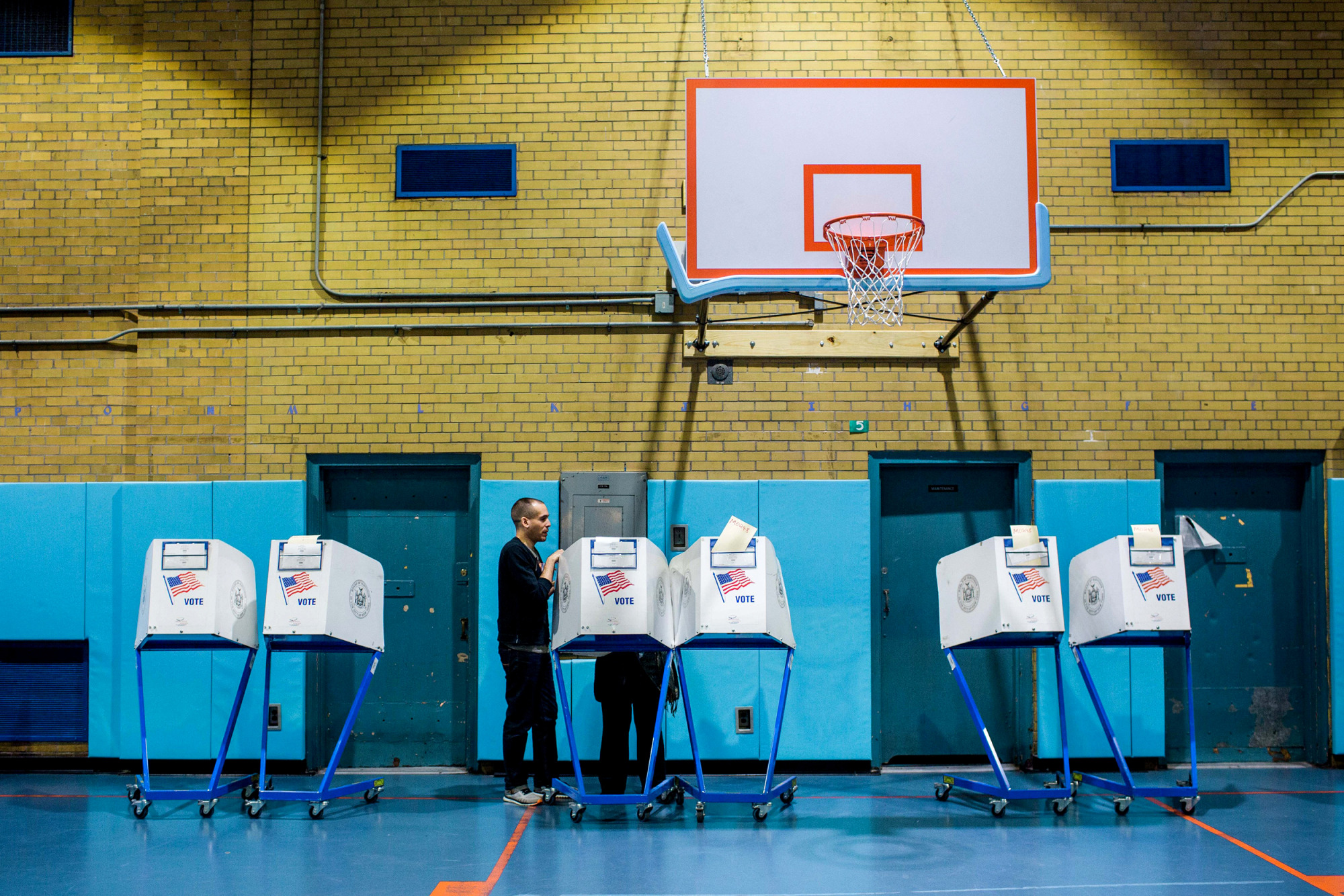- Joined
- Dec 6, 2010
- Messages
- 33,424
- Reaction score
- 5,685
I just can't see it ever clearing the Senate. The current system gives a disproportionate say to small states and their Senators won't give that power up.
https://en.wikipedia.org/wiki/Electoral_College_abolition_amendment
I concur that smaller states are the biggest opposition to the EC abolition movement, even though there are no shortage of posters trying hard to turn this electoral issue into a partisan issue.
No it doesnt, because how the current system of "winner takes all works" if a State is 51% republican and 49% democrat, logic dictates that electoral votes should be distributed accordingly, except that under winner takes all 51% of a State population decides for the entire State.
EC isnt the problem, the problem is when EC votes arent distributed proportionally.
This is also true. With the winner take all format, the notion that "every vote counts" actually only applies in the swing states that could go any direction.
If there's any voters being marginalized here, it's the tens of millions of people living in solid-colored states who understood very well that their votes don't really counts with Winner Takes All.
On a related matter, I hope Ranked Choice ballot will pick up steam at the state level:
A new voting system could fix American democracy: Ranked-choice ballots
If you think the biggest political challenge we face is partisan polarization, ranked-choice voting is proven to foster compromise, civility and moderation.
By Lee Drutman | Nov. 7, 2019

If you think the biggest political challenge we face is partisan polarization, ranked-choice voting is proven to foster compromise, civility and moderation.
By Lee Drutman | Nov. 7, 2019

Overnight, the number of Americans using ranked-choice voting to elect officials roughly doubled. That’s because voters in New York City (population 8.6 million) overwhelmingly approved a ballot measure on Tuesday adopting the new voting system for some elections in the Big Apple.
New York now joins more than 15 U.S. cities and one state (Maine) in using the voting method, which is a significant improvement over the traditional process of whichever-candidate-gets-the-most-votes-wins. This reform is increasingly taking hold because the case for ranked-choice voting is simple and profound: It gives voters more options, allows them to express their preferences better, and makes politics more civil and cooperative.
Is it so profound that it can fix American democracy? Maybe. If you believe the biggest problem in American democracy is partisan polarization (as I do), ranked-choice voting is proven to counteract some of the “I win by making you lose” zero-sum logic of our current election style, incentivizing compromise, civility and moderation, and leading to more diverse candidates.
Especially when paired with multimember districts (larger congressional districts that have more than one representative instead of our current one-district, one-representative setup), ranked-choice voting could have a transformative power in reshaping our party system into something more sustainable and less destructive.
Under traditional “simple plurality” rules, candidates often win without getting a true majority, especially in a crowded field — a problem since it can allow organized minorities to rule over disorganized majorities. This often happens when independent and third-party candidates take votes away from major-party candidates, playing the role of spoiler. But under ranked-choice voting, there are no spoilers. Voters can select their favorite candidate without having to make the internal calculation of whether that’s going to help their least favorite candidate get elected.
That’s because after selecting their favorite candidate, voters go on to rank the rest of the candidates in order of preference. If one candidate gets a majority of the first-place votes, he or she wins, as in the traditional system. But if not, as is often the case when there are more than two competitors, the candidate who comes in last is eliminated. Those who voted for that person then have their votes counted for their second-choice candidate. This retallying continues until there’s an outright majority for one competitor.
This encourages more candidates to run, expanding the field of voices, because minor party candidates are no longer dismissed as spoilers. It also changes the incentives of campaigning. In a whoever-gets-the-most-votes-wins election, it makes strategic sense to appeal to a limited but passionate base, so they turn out in large numbers, and go negative against your strongest opponents, so others shun them. But in a ranked-choice voting election, the strategic calculus changes. Since second and third (and sometimes even fourth and fifth) preferences matter, candidates have an incentive to appeal to one another’s supporters, and to build bridges instead of trying to tear one another down.
https://www.nbcnews.com/think/opini...n-democracy-ranked-choice-ballots-ncna1078491
Last edited:

